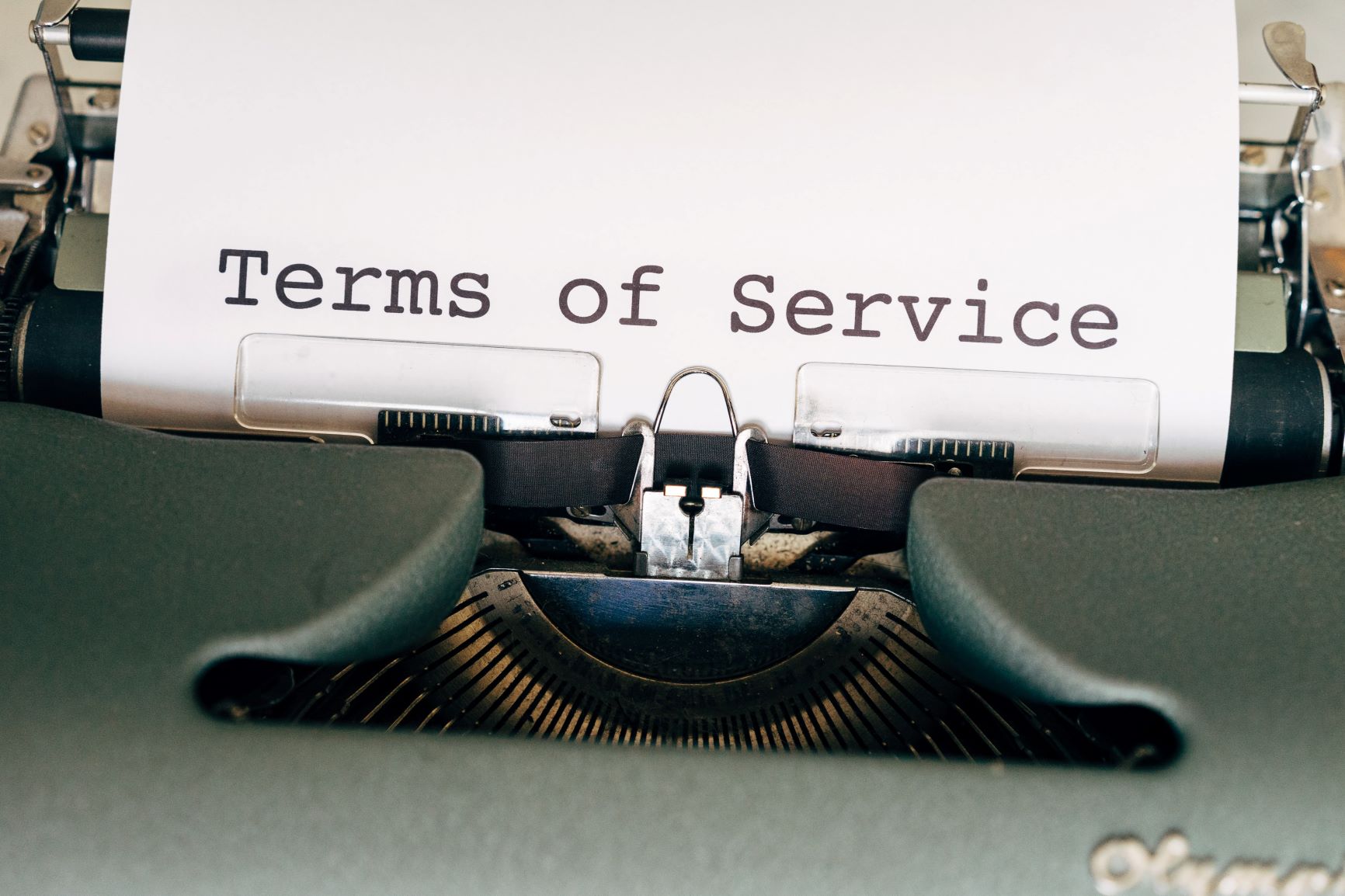
The Plain Language Bill starts its journey | Photo by Sulthan Auliya on Unsplash
The Plain Language Bill is being considered by the New Zealand Parliament. If the bill becomes law, it will require all government agencies to communicate in plain language.
Below you can read the submission made by the WriteMark Plain English Awards Trust to the Governance and Administration Select Committee.
The WriteMark Plain English Awards Trust advocates for the use of plain language in all documents that affect our ability to participate and function well in New Zealand society.
The Trust achieves its purpose primarily through running the annual Plain English Awards, which aim to:
- improve government and business documents so that all New Zealanders can understand them raise public awareness of the need for, and benefits of, plain language
- create a public preference for organisations that choose to communicate in plain language.
What is plain language?
Plain language (sometimes called plain English in New Zealand) is a style of writing in which the language, structure, and presentation of a document all work together to help the reader. A document written in plain language is easy to read, understand, and act on after just one reading.
30 March 2022
Governance and Administration Select Committee
Parliament Buildings
Submission in support of the Plain Language Bill
Tēnā koe
The WriteMark Plain English Awards Trust strongly supports the Plain Language Bill. This submission sets out our reasons and offers some suggestions to make the bill even more useful.
Why we support the bill
Over the past 17 years our interactions with public and private sector organisations, and members of the public, have given us an insider’s view of how language quality affects organisational outcomes and citizens’ lives. We can say unequivocally, that much public sector writing falls far short of the label ‘plain’. Many documents are unclear, lack a human-centred approach, and do not fulfil their purpose.
So, we strongly support any initiative to improve the quality of public-facing government documents. Our view is coloured by both the negatives mentioned below from the People’s Choice category and, conversely, by surveys that capture the real-world impact of excellent documents.
The public speak — evidence of harm and frustration from poorly written documents
In particular, documents and websites nominated in the People’s Choice Worst Brainstrain category emphasise the degree of harm and frustration, not to mention the waste of time and resources, created by poor writing.
A high proportion of the nominations in the Brainstrain category are complaints and concerns about communications from government agencies. They document the damage, frustration, and stress caused by unclear or misleading information, forms, and policies.
Just a few examples of government agencies ‘dobbed in’ by the public include the Reserve Bank, Inland Revenue, Commerce Commission, Ministry of Education, Department of Internal Affairs, Parliamentary Service, Earthquake Commission, and the (then State) Services Commission.
In many of the Brainstrain category nominations, we hear the real-world stories from people who were not served well by their government. They missed a deadline, couldn’t access a health service, missed out on the right benefit, underpaid tax, or didn’t apply for a government job — all because they didn’t understand, or they misunderstood. Most of these cases paint a picture of members of the public feeling vulnerable, disillusioned, and unheard.
Applying lessons from the good
Of course, the Plain English Awards are mostly about celebrating the good. We see outstanding examples of plain language every year and applaud those government agencies who write for the public with clarity and empathy. What would happen if all agencies wrote to that high standard? What if excellence were the norm?
Those agencies that write well give us a glimpse of what the Plain Language Act could achieve. Based on the outcomes noted on the entry forms of category winners, we’d see a positive transformation in writing quality inside government agencies. This shift would in turn result in a positive change in public perceptions.
In government agencies we’d see:
- significant efficiencies in producing documents, saving time and salaries
- greater ability to meet deadlines, with a better-quality result
- fewer misunderstandings
- more coherent, better planned messaging — getting it right the first time
- less time and angst answering the public’s queries because confusion has been removed
- less time editing or reworking colleagues’ documents that fall short of the basic standards of plain language
- less money being wasted on civil servants having to learn new ways of writing every time they move departments
- the likelihood that government ministers would drop their personal preferences that cost so many writers so much time.
We’d also see:
- easier working lives and greater job satisfaction for ministers and civil servants alike — this means reduced stress, fewer sick days, few resignations, and reduced likelihood of unmotivated workers
- a recognisable government style that is clear, human, and helpful.
For members of the public, we’d see:
- people feeling empowered to access the information they need
- more equitable access to information because people can find and understand the information they need
- reduced need to contact agencies to clarify information or instructions
- greater trust and confidence in government communications
- an observable humanising of tone, even in communications from regulatory agencies.
Additionally, businesses and other organisations would gain a touchstone for what good writing looks like — an impact that cannot be underestimated.
Recommendations to take the bill further
We have two recommendations to increase the impact of the bill and reduce the cost of administration across government agencies.
Include a plain language standard to clarify expectations
The Plain English Awards are based on the aspiration of writing to a high standard. Indeed, they take their name from standards-based sponsor WriteMark. Therefore, we highly recommend that the bill require government agencies to adopt a short and achievable writing standard such as the freely available and customisable Write Plain Language Standard.
We understand that this useful standard is already widely used and adapted by many New Zealand government agencies, plus a number of organisations internationally. Providing agencies with a documented standard makes expectations clear and avoids duplicate effort across the public sector.
Include consequences for non-compliance
The bill has so much potential to improve the effectiveness and reputation of government. But we are concerned that it may have much less impact if there are no meaningful consequences for failing to implement it. Our contacts in the US plain language movement tell us that the US Plain Writing Act was quite effective at first, but became much less so over time as agencies realised nothing would happen if they did not comply.
Thank you for the opportunity to comment.
Gregory Fortuin
WriteMark Plain English Awards Trust
Anne-Marie Chisnall May 5th, 2022
Posted In: 2022 Plain Language Awards, Clear communication, Communications
Tags: clear communication, democracy, government communication, plain language, Plain Language Bill, writing for the public
Media release: 14 October 2021
Winners in the 2021 annual Plain English Awards were announced at an online ceremony earlier today. More than a hundred people attended the virtual ceremony, including many Awards supporters from outside New Zealand.
Two Champion winners
The award for the Plain English Champion — Best Organisation went to Citizens Advice Bureau New Zealand (CAB). Lead judge for the category Matt Huntington said he was particularly impressed by CAB’s understanding of how communicating clearly is key to their effectiveness.
‘And then they take it one extra step to acknowledge the importance of communicating with empathy and respect on top of that!’ Matt says. ‘The fact that they can do this successfully while relying on such a large and diverse group of volunteers is a testament to their grounding in plain language communications.’
Entries for the Awards opened up to Australia for the first time this year. And one of the Australian entries was awarded the Plain English Champion — Best Individual or Team. Lauren Kelindeman, from law firm Legalite in Melbourne, was praised by judges for her exemplary work. Legalite was also a finalist in the Plain English Champion — Best Organisation category.
‘Lauren’s commitment to plain English shines bright in the amount of work she’s done and the quality of the advice she’s created,’ says judge Steph Prince.
In praise of clear documents and websites
The award for the Best Plain English Document in the private sector went to Ryman Healthcare for its myRyman Life eLearning tool. Health Navigator NZ took out the public sector award with its leaflet on treating type 2 diabetes, Empagliflozin.
The Best Plain English Website award for the public sector went to the Ministry of Social Development for the website www.youthservice.govt.nz. No entries made it to winner status in the private sector award for this category in 2021.
Rethinking a document or website to improve it
The Best Plain English Turnaround award went to Waka Kotahi New Zealand Transport Agency for its turnaround of The New Zealand code for cycling.
Legal, Annual Report, and Technical Communicator categories
Southern Cross Travel Insurance took out the Best Legal Document award for its Domestic Travel Insurance Policy Document.
National Trauma Network won Best Plain English Annual Report for its New Zealand Trauma Registry Annual Report 2019/20.
The Best Plain English Technical Communicator was the team at thinkstep-anz.
Spotlight on the humble sentence
Auckland City Council won the award for Best Plain English Sentence Transformation.
People’s Choice — the best ‘but no worst’
Several top-notch entries were submitted by members of the public for the People’s Choice — Best Plain English Communication category. Kiwibank won this award for its letter We’re improving our home loan documents.
One of the judges of this entry said, ‘Taking complex subject matter such as home loans and making it accessible is not easy. Kiwibank have done an excellent job in communicating this, and on a single A4 sheet! Bravo!’
And in what is thought to be a first for the Plain English Awards, no entries were received for the notorious People’s Choice — Worst Brainstrain award. Lead judge for this category Simon Hertnon says he’d like to think that this is a good sign: ‘A sign that people are putting more thought into their communications. That the plain language message is getting through.’
Telling stories to inspire others
The theme of this year’s Awards was ‘Story!’ Awards founder and CE of plain language consultancy Write Limited Lynda Harris says:
‘The goal of sharing stories is to help people understand the “why” behind different plain language projects. That is, why a plain language approach was vitally important for that project, and how it helped its success.
‘By telling people’s stories, we want to shine a light on the impact of people’s efforts. And to give the public a glimpse behind the scenes of plain language as it plays out in the lives of individuals and organisations. Ultimately, we’d like people to be inspired to take similar approaches.’
Thanks to Awards sponsors
Sponsors play a key part in keeping the Plain English Awards going. Organisers would like to thank the following organisations for their support: WriteMark Limited, Write Limited, the Wright Family Foundation, Graphic Solutions, NZ Super Fund, Newsroom, Streamliners, TechCommNZ, Skillset, printing.com, MoneyHub, Consumer, Shelly Davies, Community Comms Collective, Editor Software (UK), Informed Investor magazine, Kendons, and Modica Group.
Find out more
See the full list of winners and finalists
Nicola Welby October 20th, 2021
Posted In: 2021 Awards ceremony, Communications, Media release
Tags: 2021 Plain English Awards, Best communication, Best Plain English Communication, Brainstrain, champions, clear communication, People's Choice, plain English, Plain English Awards, plain language, recognition, writing for the public

Breathe new life into your documents and make them worthy of the Turnaround Award | Photo by Bryn Parish on Unsplash
What does it take to win the Best Plain Language Turnaround category? What does a winning entry in this category look like?
More than an edit or redesign
A top submission in the Best Plain Language Turnaround category will be more than an edited version of an original document. It’ll be more than a website that has been redesigned. More than information that has been restructured to be more reader-focused. More than information that has been user-tested for its target audience.
Coming from a place of care
A winning entry in the Best Plain Language Turnaround category will include many of the above qualities and then some. Above all, it will clearly have come from a place of care. An individual or team will have looked at the communication and thought, ‘This information is important and the people it’s serving deserve our time to make the information better serve its purpose’. In other words, the writers will be caring for their readers.
What judges have said about previous winning entries
Have a read of what our judges have said about some of our past turnaround winners.
Winner 2018: Infinite Possibilities Limited
‘This is a damn clever turnaround. I couldn’t stop thinking about it.’
‘A remarkable change! You’ve taken a legal document and turned it on its head. It’s brilliantly unconventional, witty, exudes personality, and was a pleasure to read.’
‘The word choice is casual and direct with a very distinct tone. Some people will clearly consider it unbusiness-like and will not do business with this company. Others will find it refreshing and will move forward — exactly the intent to weed out those clients who find it offensive and to sign on those who find it refreshing.’
Winner 2017: Ministry of Civil Defence & Emergency Management
‘This is a terrific turnaround from a dull, wordy website to one that is lively, engaging, and easy to navigate. This organisation has done a great job of using multimedia, and their restructuring of the content works really well.’
‘The scenario-based navigation on the home page is friendly, colourful, and relevant, and this flows well into the more text-heavy pages further down in the site. The scenarios capture the reader’s attention and the short videos are hilarious — a great way to get people involved in thinking through how to be ready for a disaster or emergency.’
‘The layout and formatting are much cleaner, with good use of white space and headings to focus the eye. The tips are helpful and the key messages are brought to the fore much more than in the original. Great work!’
Winner 2015: OSPRI
‘You’ve done a great job with this rewrite. It’s a vast improvement on the original. This is a usable and useful document, which does the job well. Nice work!
Find out more about the Best Plain Language Turnaround category
Melissa Wardell July 9th, 2021
Posted In: 2021 Plain English Awards, Communications, Plain English Awards, Plain English Turnaround
Tags: 2021 Plain English Awards, Best Plain English Turnaround, Best turnaround, clarity, clear communication, clear writing, plain language, Turnaround Award, writing for the public, writing for the reader

The judges are looking for easy-to-read legal documents | Photo by Markus Winkler on Unsplash
What’s the number one thing a reader of a legal document is looking for? We’d like to suggest that it’s clarity! Readers of any writing — including legal documents — are looking for a document they can read once, understand, and act on.
Read the full version of a definition of plain language by the International Plain Language Federation
The award for Best Plain Language Legal Document celebrates legal writing that gets its point across without that legal flavouring that we’ve seen so often. How often have you encountered words like these in a legal document — furthermore, notwithstanding, prior to, accordingly? And what about commence, expedite, or terminate?
Let’s see some legal documents that push the boundaries of ‘plain’
The winners of the Best Plain English Legal Document in 2018, Draper Cormack, pride themselves on communicating clearly and directly with their clients. And the judges agreed that they were doing a great job of clear communication with their terms and conditions. The judges said:
This document is written in a way that gives the intended audience a strong chance of understanding it at the first reading, and in the way the drafter wants them to. It’s clear, direct writing, using as few words as needed, and avoids being ambiguous, lengthy or technical writing and complex sentences.
Overall, it is a good example of what you can do with a legal document.
The other finalists, Infinite Possibilities and Hatch, also made clarity a key feature of their communication with their customers.
Check out a legal document with a difference in the client relationship agreement from Infinite Possibilities
And take a look at Hatch’s terms too. The judges said:
Overall this document shows what plain English can achieve in the law. The target audience is written to in a language it can understand and act upon with confidence. The flow of ideas is logical and the design is clear and concise. [The document’s audience] would easily and quickly grasp its implications.
What the judges are looking for
The judges are looking for the best example of a legal document written in plain language. You can enter a document used in legal contexts or for legal purposes. Examples include contracts, agreements, terms and conditions, notices, deeds, judgments, legal opinions, and so on. The document may cover a legally enforceable Act, process, obligation, or right.
Here are the judging criteria. And remember the judges will also be keen to know if you’ve evaluated your document in any way, such as carrying out document user-testing.
Purpose
The purpose of the document is clear at the start, and the content supports the purpose of the document.
Structure
The structure is clear and logical to the reader.
Headings and main messages
The headings are informative and clearly signpost the main messages.
Paragraphs
The paragraphs are mostly short and focused on one topic.
Sentences
The sentences are mostly short and straightforward.
Words
The words are precise and familiar. Technical terms are explained.
Layout and presentation
The layout helps the reader absorb the messages quickly and easily.
Watch videos from our judges of the legal category in our gallery:
More about the Best Plain Language Legal Document category
Anne-Marie Chisnall June 9th, 2021
Posted In: 2021 Plain English Awards, Communications, Industry awards, Legal writing, Plain English Awards
Tags: 2021 Plain English Awards, Best Legal Document, clear communication, clear thinking, clear writing, improved writing, Legal writing, legalese, writing for the public
Media release: 7 May 2021
After holding off entries last year, the full Plain English Awards are back in 2021. The Awards will look a little different this year, with a virtual ceremony and some new ways for entrants to share their inspiring work in clear communication.
Fresh Awards with a new theme
This year’s theme for the Awards is Story. We’re inviting the public to share the stories behind their plain language projects in short videos. We’ll showcase these videos in a gallery to inspire and enlighten the wider public. The video gallery is open now.
‘A major goal for the Awards has always been to bring plain language into common use,’ says chair of the WriteMark Plain English Awards Trust, Gregory Fortuin. ‘We know that stories raise awareness and inspire action. The more visible the stories of our entrants, the more sparks of possibility and innovation will be lit.’
All the familiar categories are back
This year’s Awards will feature all categories, including the two People’s Choice categories for Best Communication and the infamous Brainstrain.
‘As we’ve seen in the events of 2020 and beyond, clear communication makes a real difference in people’s lives,’ Gregory says. ‘Here’s a chance to celebrate all the great work that people having been doing over the past couple of years.’
Important dates for the 2021 Awards
- 1 June: Entries open
- 31 July: Entries close
- 30 September: Finalists announced
- 14 October: Winners announced
Big thanks to our media partner, Newsroom
The goodwill and support of our sponsorship partners keeps the Plain English Awards ticking. We’re immensely grateful to New Zealand-based news and current affairs site, Newsroom.co.nz for believing in our cause and being our media partner.
ENDS
Get more information
www.plainlanguageawards.org.nz
Jonathan Tan, project manager, 2021 Plain English Awards | enquiries@plainlanguageawards.org.nz
OR
Gregory Fortuin, Chair, WriteMark Plain English Awards Trust | 021 465 254
Nicola Welby May 7th, 2021
Posted In: 2021 Plain English Awards, Communications, Media release, Plain English Awards, Story theme
Tags: 2021 Plain English Awards, Best communication, Best Plain English Communication, Brainstrain, clear communication, People's Choice, plain English, Plain English Awards, plain language, recognition, writing for the public

A beautiful handmade trophy is one of several prizes in store for Accuro Health Insurance. Image by A Beautiful Photo
Winners in the 14th annual People’s Choice Awards were announced by Awards media partner Newsroom last week. The People’s Choice Awards recognise the best and worst in government and corporate communications, nominated anonymously by members of the public.
Accuro Health Insurance comes out tops
The award for the People’s Choice — Best Plain English Communication goes to Accuro Health Insurance for their website.
See the official announcement on the Newsroom website
The person who nominated this website said:
It’s a beautifully clear, simple website. I found it clear and logical.
The international panel of judges said about this entry:
This website is a very good example of plain English used to support a business to communicate clearly and in an engaging way with as many New Zealand residents and citizens as possible. I’d expect it to have a positive impact on sales to new customers and existing customer retention and engagement.
This is a very strong site. It gives a great first impression, drawing the reader in from the start. This is then followed up by concise and engaging content, and a simple-to-navigate layout that makes it easy for readers to find and do what they need to.
[Accuro has] done a good job creating a user experience that is clear and helpful, which is refreshing for an insurance organisation.
Bad news for Auckland Council
The award for the People’s Choice — Worst Brainstrain Communication goes to Auckland Council for its Proposed Plan Change letter.
See the official announcement on the Newsroom website
The person who nominated this document said:
A good friend of mine came in waving her [copy of this letter] at me, saying she had a Master’s degree in English and couldn’t understand a word of it.
The international panel of judges said about this entry:
This document is very difficult to understand, which disturbs me because it seems very important for landowners. Also, the writer portrays the content as unimportant, but I don’t think it is so, and this makes me suspicious.
The council is trying to bring a planning change to the attention of its ratepayers and residents. But it has failed miserably to think about how to get that message across in plain language. [The letter] appears to be written for people who understand council processes, not for those who will be most affected by the change.
The third component of this communication is already written in plain language, so the skills to write the rest in plain language exist. This is poor performance for a very important matter, and a huge opportunity missed. Many residents were frustrated by this communication.
New Zealanders continue to benefit after 14 years
The People’s Choice Awards are held each year and form part of the Plain English Awards. The full Plain English Awards are held every second year. Entries for the 2020 Plain English Awards will open at the end of March 2020.
After 14 years of Awards, New Zealanders continue to reap the benefits of business and government using clear communication to engage with their clients, consumers, and customers. The Awards reinforce the element of care that lies behind reader-focused communications.
Awards founder (and CE of plain language consultancy Write Limited) Lynda Harris said care is one of the qualities associated with plain English that’s closest to her heart.
People who choose to communicate in plain English do, by definition, care about their readers. They put the needs of their readers first as they think and write. They care about people, impact, and outcomes.
Awards sponsors
Sponsors for this year’s Awards included WriteMark, Write Limited, Wright Family Foundation, Graphic Solutions, Newsroom, printing.com, MoneyHub, and Consumer NZ.
Other sponsors, whose contributions to the Awards were invaluable, are Editor Software (United Kingdom), JUNO Investing Magazine, and Kendons.
Find out more
See Newsroom’s official announcement of this year’s winners
Read what our winners and finalists had to say on our winners page
For more information, contact:
Gregory Fortuin, Chair, WriteMark Plain English Awards Trust
021 465 254
Anne-Marie Chisnall December 4th, 2019
Posted In: 2019 People's Choice Awards, Brainstrain, People's Choice awards
Tags: Brain Strain Award, clear thinking, clear writing, Industry awards, jargon, jargon-busting, People's Choice Awards, plain English, plain language, power of plain English, writing for the public

Judge Matt Huntington, left, hands over a trophy to last year’s winner of the People’s Choice Best category, Troy Churton from the Commission for Financial Capability. Photo by Rebecca McMillan.
Awards media partner Newsroom will announce the winners of this year’s People’s Choice Awards on Thursday, 28 November.
We can’t wait to find out which of our finalists have come out tops. And we’re very excited to have the support of Newsroom to help us spread the word.
James Elliott — our fabulous and funny MC at Awards presentations for the last 5 years — is continuing his support for plain language by being our star announcer.
All sorts of goodies await the winner of the Best Plain English Communication
We know our judges have been thinking long and hard about which of the top four nominations in their category deserves to win. What can the finalists, all supported by members of the public, look forward to if they win?
First of all, we’re pretty sure they’ll be celebrating their award, knowing that their communication has had a positive impact in the world.
As well, thanks to our wonderful sponsors, the winner will walk away with some fabulous prizes.
They’ll be thrilled to receive the iconic trophy in steel and bronze by Wellington sculptor Campbell Maud. They’ll enjoy using the latest StyleWriter plain English editing software from Editor Software to craft future documents.
And we think they’ll be excited to extend their skills with a place on any of Write Limited’s 1-day open workshops.
A little bit of fun for our Brainstrain winner
Our Brainstrain judges are all industry experts and take their roles very seriously. Even so, we always present the Brainstrain Award with good humour. That’s why the winner of the Worst Brainstrain Communication gets the famous Brainstrain rubbish bin filled with sour worms.

Who’ll win the notorious rubbish bin full of sour worms this year? Photo by Rebecca McMillan.
Winners of our Brainstrain category need serious prizes too! They’ll also get:
- the latest StyleWriter plain English editing software from Editor Software
- 2 hours free consultancy from Write Limited to start transforming the document or webpage into plain English
- a place on any of Write Limited’s 1-day open workshops.
Good luck to all our People’s Choice finalists!
We look forward to finding out our winners on Thursday, 28 November. Why not join us?
Anne-Marie Chisnall November 20th, 2019
Posted In: 2019 People's Choice Awards, Brainstrain, People's Choice awards
Tags: Brain Strain Award, clear thinking, clear writing, Industry awards, jargon, jargon-busting, People's Choice Awards, plain English, plain language, power of plain English, writing for the public

Hands up who's excited about the upcoming Plain English Awards? Image by Jaime Lopes/Unsplash licence.
We’re encouraged by the amount of interest people are showing in next year’s Awards. We hope this is a sign that our goal of creating a public preference for plain English is working!
So that you’re ready when the time comes, here are the dates you need to know for the 2020 Awards.
- Entries open: Tuesday, 31 March
- Entries close: Friday, 29 May
- Shortlist announced: Thursday, 18 June
- Finalists announced: Thursday, 23 July
- Winners announced: Thursday, 20 August
Find out more about entering the 2020 Plain English Awards
Email us to find out about sponsorship options for next year’s Awards
Anne-Marie Chisnall November 18th, 2019
Posted In: 2020 Plain English Awards, Industry awards, Plain English Awards
Tags: clear thinking, clear writing, improved writing, Industry awards, jargon, jargon-busting, plain English, Plain English Awards, plain language, power of plain English, writing for the public

Our winners will be announced on 28 November. Image by Michael Vavro/Unsplash licence.
On Thursday, 28 November, lawyer and comedian James Elliott will announce this year’s winners on the Newsroom website. No more biting your nails in anticipation!
What’s making our Brainstrain judges cringe
Initial feedback from our judges in the Brainstrain category hints at a lot of work needed to bring some of the nominations up to par. Judges have even expressed concern that ‘documents of this standard are still being written’.
From what we know so far, our Brainstrain judges have been frustrated by excessive jargon and technical terms, poor flow, and vague and confusing words, among other gripes. One judge hinted that ‘documents like this used to be the norm, but that’s no longer the case as plain language steadily spreads’.
What’s making our Best Communication judges smile
In contrast to what our Brainstrain judges have been grappling with, judges in our Best Communication category have been reporting lots of good news. They’ve been reviewing nominations that are apparently engaging from the outset, sensitive to the reader, easy to navigate, and attractive. Feedback from one of our judges even implied that one of the nominations they’d reviewed was ‘fun to read’!
Make sure you check in to the Newsroom website on Thursday, 28 November. We’ll also direct you to the online announcement through our own website.
Anne-Marie Chisnall November 14th, 2019
Posted In: 2019 People's Choice Awards, Brainstrain, People's Choice awards
Tags: Brain Strain Award, clear thinking, clear writing, Industry awards, jargon, jargon-busting, People's Choice Awards, plain language, writing for the public

A beautiful handmade trophy is one of several prizes in store for Accuro Health Insurance. Image by A Beautiful Photo
After the first phase of judging in this year’s People’s Choice Awards, our two expert judging panels have agreed on their shortlists.
Who made it to our Best shortlist?
The following nominations have been shortlisted for our People’s Choice — Best Plain English Communication Award:
Who made it to our Worst shortlist?
The following nominations have been shortlisted for our People’s Choice — Worst Brainstrain Award:
- Auckland City Council — Proposed Plan Change letter
- Christchurch City Council — Te Wai Ora o Tāne Draft Integrated Water Strategy
- Rabo Capital Securities Limited — Redemption Notice letter
What happens next
Our judges will review all shortlisted entries in greater detail. They’ll then decide on this year’s finalists.
We’ll announce the finalists on Thursday, 17 October.
Our media partner, Newsroom, will announce this year’s winners on their website on Thursday, 28 November.
Anne-Marie Chisnall September 20th, 2019
Posted In: 2019 People's Choice Awards, Brainstrain, Shortlists
Tags: Brain Strain Award, clear thinking, clear writing, improved writing, Industry awards, jargon, jargon-busting, People's Choice Awards, writing for the public










